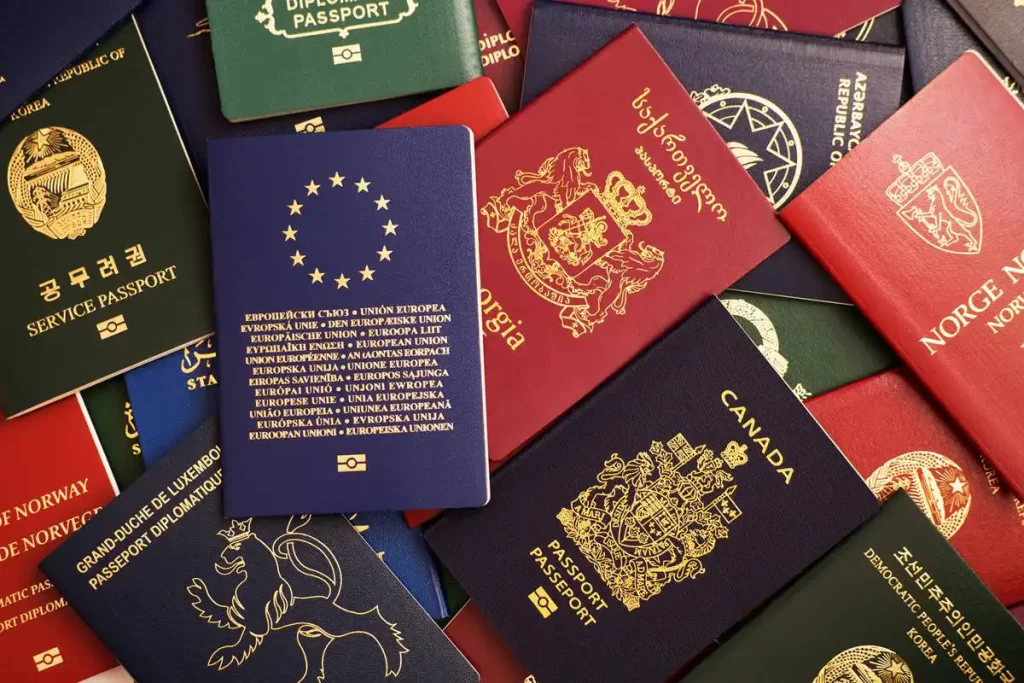Introduction: Unlocking the World Through Passports
In an ever-connected world, passports serve as keys to unlocking the vast tapestry of global travel. However, not all passports are created equal. A recent ranking of the world’s most powerful passports reveals a stark contrast in global mobility, shedding light on the disparities that exist between nations. Let’s delve into the list of the most powerful and weakest passports, highlighting the privileges and limitations they entail.
Table of Contents
| Sr# | Headings |
|---|---|
| 1. | The Most Powerful Passports |
| 2. | The Least Powerful Passports |
| 3. | Passport Mobility Shifts |
| 4. | Impact on Global Travel |
| 5. | Economic Implications |
| 6. | Sociopolitical Factors |
| 7. | The Human Perspective |
| 8. | Addressing Global Disparities |
| 9. | Future Trends and Forecasts |
| 10. | Conclusion |
The Most Powerful Passports: Opening Doors to the World
Smooth, visa-free travel essentially equates to carrying a European passport or hailing from select high-income Asian countries. Nations like France, Germany, Italy, Japan, Singapore, and Spain lead the pack, offering visa-free entry to an impressive 194 destinations. This privilege fosters a sense of global citizenship, facilitating seamless exploration and cultural exchange.
The Least Powerful Passports: Navigating Barriers and Restrictions
Despite global strides in travel accessibility, many nations still face significant barriers. Countries such as Afghanistan, Syria, Iraq, Pakistan, and Yemen find themselves at the bottom of the passport power hierarchy, with access limited to as few as 28 to 35 destinations. These limitations not only hinder personal travel but also exacerbate economic and social inequalities.
Passport Mobility Shifts: Dynamics of Change
Passport power is not static; it evolves over time. Changes in mobility occur as countries amend visa requirements, either expanding or restricting access for travelers. Nations like Canada, the United Kingdom, the United Arab Emirates, China, and Ukraine have experienced notable shifts in their passport strength, reflecting broader geopolitical and economic trends.
Impact on Global Travel: Bridging Divides or Widening Disparities?
The widening gap in passport power underscores broader issues of global inequality. While some enjoy seamless access to the world, others face formidable barriers that limit their opportunities for exploration and economic advancement. Addressing these disparities is essential for fostering a more inclusive and interconnected global community.
Economic Implications: Linking Mobility to Prosperity
The correlation between passport power and economic performance is undeniable. Access to visa-free travel facilitates trade, investment, and tourism, driving economic growth and prosperity. As such, enhancing passport mobility can serve as a catalyst for socioeconomic development, particularly in less affluent nations.
Sociopolitical Factors: Privilege, Security, and Exclusion
Visa policies are not merely bureaucratic measures; they reflect broader sociopolitical dynamics. Wealthier nations often employ visa restrictions as a means of safeguarding their interests, leading to the exclusion of vulnerable populations. This perpetuates a global hierarchy based on socioeconomic status and reinforces systemic inequalities.
The Human Perspective: Stories Behind the Stamps
Behind every passport stamp lies a story—a journey of exploration, connection, and sometimes, adversity. For many, obtaining a visa is not merely a bureaucratic process but a symbol of hope and opportunity. Recognizing the human impact of passport policies is crucial for understanding the broader implications of mobility restrictions.
Addressing Global Disparities: Towards Equity and Inclusion
Addressing the root causes of passport inequality requires concerted efforts on a global scale. This entails reforming visa policies, promoting diplomatic dialogue, and addressing underlying socioeconomic disparities. By fostering greater inclusivity and understanding, we can work towards a world where travel is not a privilege but a fundamental human right.
Future Trends and Forecasts: Navigating the Road Ahead
As the world becomes increasingly interconnected, the dynamics of passport power will continue to evolve. Emerging technologies, shifting geopolitical landscapes, and changing socioeconomic conditions will shape the future of global mobility. By staying attuned to these trends, we can anticipate challenges and opportunities on the horizon.
Conclusion: Building Bridges, Breaking Barriers
In a world marked by division and disparity, passports serve as both bridges and barriers. While some passports open doors to opportunity and adventure, others erect insurmountable walls of exclusion. By addressing the underlying inequities that shape passport power, we can strive towards a more equitable and interconnected world.
FAQs: Demystifying Passport Power
1. Why do some passports offer more visa-free travel than others? Different countries negotiate visa agreements based on factors such as diplomatic relations, security concerns, and economic interests.
2. How do visa policies impact global tourism and trade? Visa restrictions can deter tourists and hinder trade partnerships, limiting economic opportunities for both sending and receiving countries.
3. Are there any initiatives to promote global passport equality? Efforts such as visa waiver programs and diplomatic dialogue aim to foster greater mobility and inclusivity on a global scale.
4. How do passport rankings affect individual travelers? Passport rankings influence travel planning, with individuals often choosing destinations based on visa requirements and travel restrictions.
5. What steps can individuals take to overcome passport limitations? Exploring alternative citizenship options, such as investment migration or dual citizenship, can provide greater mobility for individuals from countries with weaker passports.
By addressing these frequently asked questions, we aim to provide clarity and insight into the complex dynamics of passport power and global mobility.

